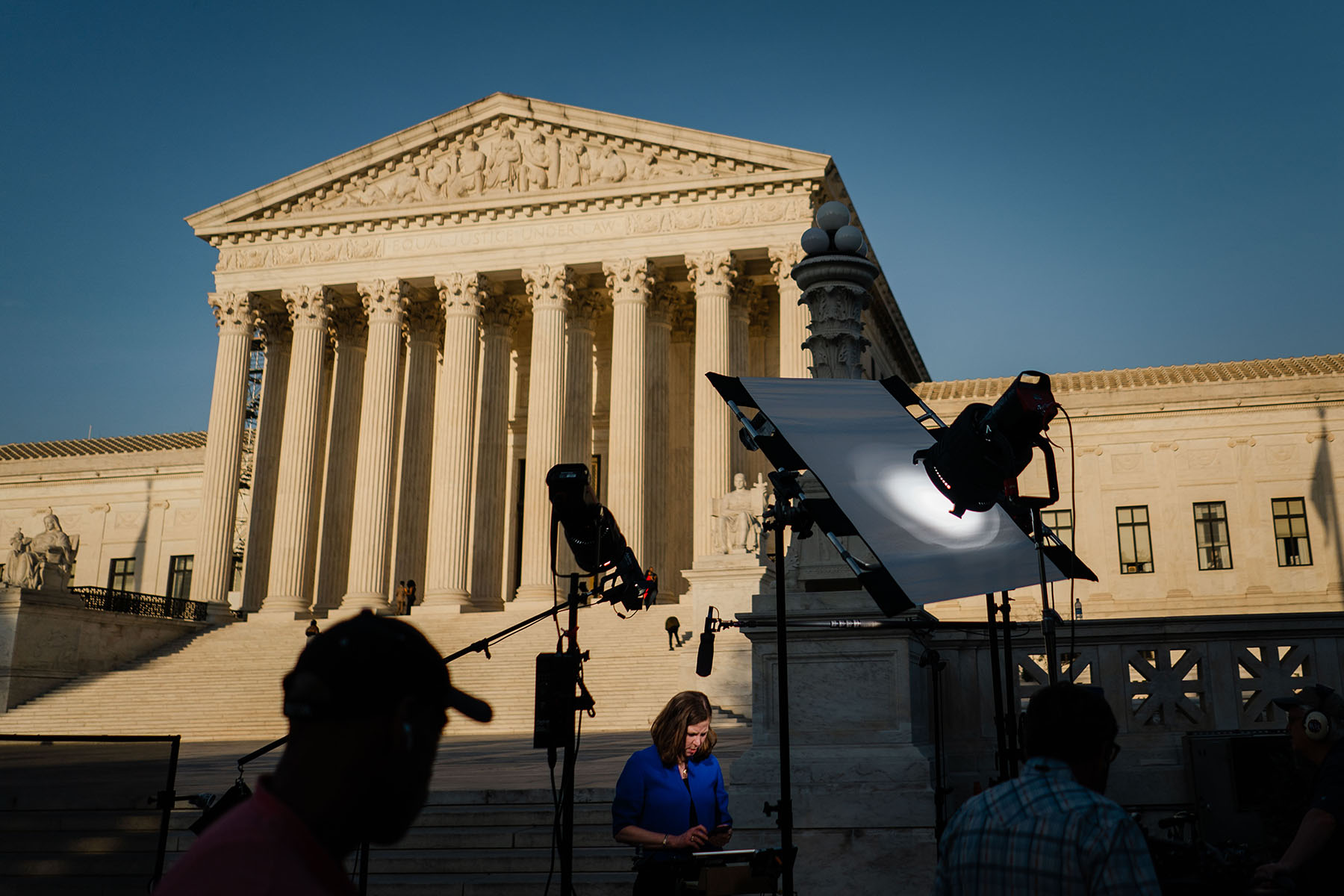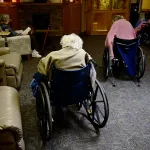Your trusted source for contextualizing the news. Sign up for our daily newsletter.
The Supreme Court on Thursday preserved the ability of people with disabilities, older adults and their families to sue when federally-funded programs like Medicaid aren’t fairly and safely administered.
The 7-2 decision, which marks Justice Ketanji Brown Jackson’s first major majority opinion, upheld a lower court’s ruling that the daughter of Gorgi Talevski could sue an Indiana health care system.
After the oral arguments in November, advocates described the case, Health and Hospital Corporation of Marion County v. Talevski, as an “assault” on the rights of older adults, people with disabilities and their families. At the time, advocates were working to pressure the parties involved to drop or settle the case out of fear that the court would gut a major civil rights enforcement mechanism. Those efforts failed, but disability and aging advocates still ended up victorious.
“Today is a great day for civil rights in the Supreme Court. We haven’t gotten to say that very often recently,” said Megan Schuller, legal director for the Bazelon Center for Mental Health Law, which provides legal advocacy for people with mental health disabilities.
Schuller praised the decision and articulated some of the concerns advocates had about the case’s outcome, noting that it could have damaged a “large number” of civil rights statutes.
“Looking at the Dobbs decision [that ended the federal right to an abortion], the Supreme Court has not seemed recently to have the same respect for its own precedent that it used to. I find the [focus on the law and precedent in the majority decision] powerful,” she said.
In the majority opinion, Jackson wrote that the court was “unconvinced” by Health and Hospital Corporation of Marion County’s argument that the late Talevski’s family did not have a right to sue over his alleged abuse in a nursing home they operate.
“Hewing to [the relevant statute]’s text and history (not to mention our precedent and constitutional role), we reject HHC’s request, and reaffirm that ‘laws’ in [the statute’s text] means what it says,” Jackson wrote.
-
More from The 19th
- Supreme Court case altering Medicaid is ‘an assault’ on older adults and people with disabilities, advocates warn
- Medicaid program expands funding for seniors and people with disabilities, but its future remains uncertain
- 37 years and over 100 arrests: Longtime disability rights icon Anita Cameron is retiring from protests
The decision means that Talevski’s surviving family has a right to move forward with their lawsuit.
“The argument of [Health and Hospital Corporation of Marion County] was, ‘You don’t even have a right to be here. You can’t bring this case at all.’ The Court of Appeals rejected the dismissal and said that [Talevski] did have a right to bring the case,” said Shira Wakschlag, senior director of legal advocacy and general counsel for the Arc of the United States, which advocates on behalf of people with intellectual and developmental disabilities and their families.
“The Supreme Court has affirmed that. But the whole case still has to be litigated.”
The Arc, the Bazelon Center and several other disability organizations filed an amicus brief in the case.
The case has implications that reach far beyond a single lawsuit. The court’s majority also rejected Health and Hospital Corporation of Marion County’s argument that people cannot sue government programs that violate government spending. If their argument had been accepted by the court, it would have removed a primary enforcement mechanism from an array of federal programs.
Michael Oles is field director for Our Revolution, a progressive political action organization. He organized local protests against the Health and Hospital Corporation of Marion County in Indiana and was part of the coalition that unsuccessfully attempted to pressure withdrawal or settlement of the case.
“When I heard the news this morning, I was out for a walk. I started yelling and jumping up and down in the middle of the street. My neighbors must have thought I was crazy. But this feels like a miracle,” Oles said.
Fundamentally, advocates say, the decision is a rare victory.
“If you take out some of the legalese, what we’re left with today is that many individuals with disabilities, many low-income individuals who are receiving public safety net programs can continue to have their rights vindicated and pursue relief if their rights are violated. That means that our laws are stronger, because there’s accountability,” Wakschlag said.






